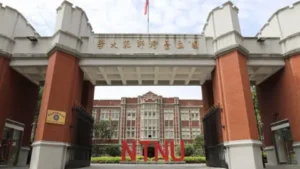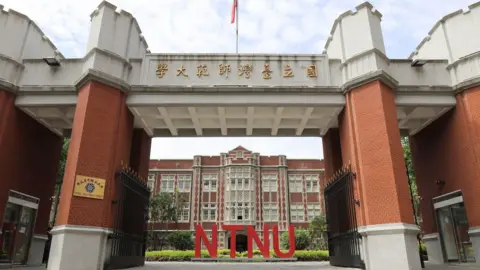In a recent controversy that has arisen from Taiwan, a coach at the National Taiwan Normal University has found herself in hot water due to allegations surrounding a research project that reportedly involved pressuring students to donate their blood. Coach Chou Tai-ying, aged 61, publicly issued an apology after the claims were brought to light by Taiwanese politician Chen Pei-yu. The crux of the issue lies in the assertion that students involved in the project were led to believe that their academic credits could be jeopardized if they refused to participate in the blood donation process.
Chou disclosed that her original intent behind the blood collection was aimed at assisting her sports team, which faced a shortage of players often plagued with injuries. However, the specific purpose of the blood samples taken from the students remains unclear, raising concerns regarding the ethics of the research. The internal investigation launched by the university revealed that the practice had begun in 2019 and had continued up until 2024, ostensibly to support various “research projects” that were conducted without proper oversight.
Details from the investigation further indicated that the students were asked to provide blood samples daily and that these samples were eventually discarded after improper collection methods were uncovered. According to Chen Pei-yu, the blood donation protocol was extreme, requiring players to give three samples each day over a two-week stretch. This led to increased scrutiny of the ethical considerations in conducting such research on student-athletes and the potential for coercion based on their academic standing.
In her apology, Chou expressed regret for any distress caused to the students and acknowledged her role in imposing undue pressure through what she described as “reckless words and behavior.” She stated, “It is definitely my fault for making you feel the way you did,” addressing the students directly through her statement. Alongside Chou, Professor Chen Hsueh-chih, who was the leader of one of the unspecified research initiatives, also issued an apology, acknowledging that while the aim was to assist student athletes, the process inadvertently resulted in distress for the students and their families.
The fallout from the investigation has garnered responses from high-level officials at the university. Wu Cheng-chi, the principal of NTNU, apologized for what he termed the school’s negligence in failing to enforce adequate ethical guidelines and oversight concerning the research. He further stated that a thorough review of the institution’s ethical practices would be conducted in light of the situation.
In an additional layer of scrutiny, Taiwan’s deputy education minister announced that the case would be reviewed not only on its own merits but also concerning the accountability of both Chou and Chen. The ministry has also indicated a potential revocation of the coaching license for a women’s football coach at NTNU, although this individual has not been publicly identified.
Overall, this troubling episode raises important questions about the ethical treatment of students in academic and research settings, especially within the realm of athletics. It highlights the necessity for schools to maintain stringent ethical standards and for students to be protected against coercive practices that may endanger their welfare. This incident in Taipei is a cautionary tale that could serve as a wake-up call for other educational institutions to examine their research protocols and the treatment of student participants.











